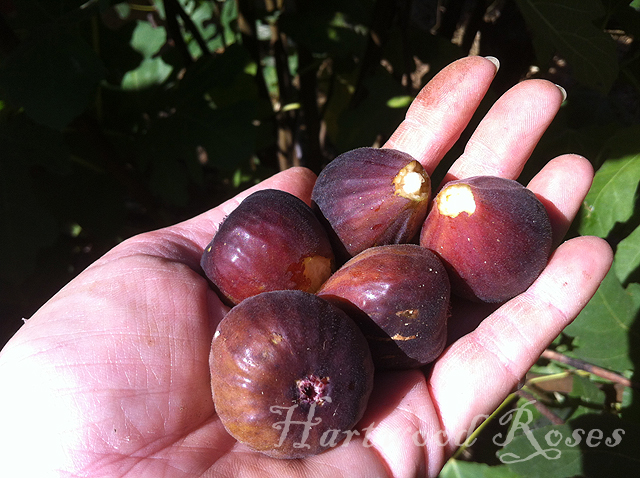Our past two winters have been much colder than average. All of these unprotected figs were frozen and killed clear to the ground. This spring, I almost ripped them out. It's too frustrating to alot this much space and emotional energy to a crop that's so frustrating. I had a change of heart in early summer, when I saw that each of the figs started to show new growth ... and they ended up growing tall and beautiful. I didn't hold out much hope for any fruit production on those immature branches, though. Imagine my surprise the other day, when I went to work on the roses back there and I found these on one of the bushes.
Six ripe figs!! (The eagle eyes among you have already noticed that there are only five figs in the picture. I was chewing the sixth one when I realized that I should snap a pic to document the event.) There are a few more figs that will probably be ripe in a few days, if the groundhogs don't find them first.











